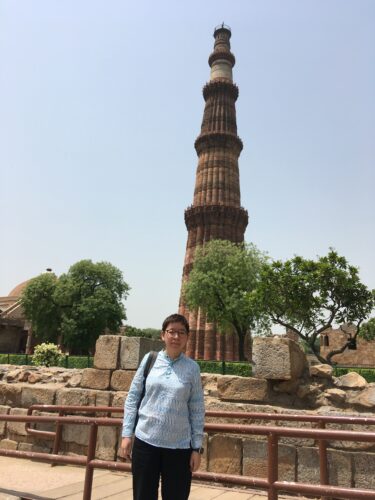Q: When you were a child, what was your response to this question: “What do you want to be when you grow up?”
A: When I was a child, my parents took refuge from a neighboring country to British Hong Kong. They and my other family members worked hard to make a living. “What I want to be when I grow up” was almost an unthinkable question to me. I want to survive. I want to buy and eat mandarin jelly without worrying how much pocket money I have — that was what I thought in my childhood. My mindset has gradually changed since high school, as my family’s financial situation became more stable and as I have absorbed more new ideas through reading and traveling. In any case, I still love mandarin jelly.
Q: Share the pivotal moment in your life that helped you choose your field of study.
A: In middle school, I was always on the edge of failing history exams. Before the exams, one teacher would give us her “suggested answers” for the essay questions, and she would tell us to memorize them. Once, the teacher told us to write about the impact of the Industrial Revolution in Britain in the 19th century. I didn’t understand why we should learn about the Industrial Revolution or why I should memorize another person’s interpretation of a historical event, so I refused to recite my teacher’s suggestions. I nearly failed the exam, and my teacher penalized me by telling me to stand outside the classroom for the whole lesson.
I thought I could never enjoy studying history after that, but my high school history teacher’s passion changed my mind. She always raised thought-provoking questions to help us understand the relevance of history to the present and showed us how to analyze historical documents. I experienced how fun and empowering it is to analyze primary and scholarly sources, think with historical figures and historians, and establish my own arguments about the past and present.
Q: Tell us about a time you encountered a tricky problem. How did you handle it and what did you learn from it?
A: I spent the summer of 2017 in three Asian countries to conduct pre-dissertation research on anti-colonial movements in South and Southeast Asia. Due to time constraints, I decided not to order photocopies of certain historical documents at one national archive. I planned to go back and spend two months there to comb through the documents. In early 2019, I did return during a nine-month research trip.
Unfortunately, I could no longer locate the documents — they had been removed from the catalog of the archives. If we see archives not as a dusty warehouse with tons of old papers but a site of power struggle, then it is not surprising that some documents “disappear.” Still, I was disappointed, especially because all the disappeared files were about an anti-colonialist whose ideas I had wanted to study in-depth for my dissertation.
Afterward, I took a break from archival research for a week so that I could calm down and rethink about my project. Since the incident, and for the rest of the research trip, I have collected historical documents with the mentality that it would be the last time I found them.
Q: Describe your research in 5 words.
A: Surviving political shifts in Asia.
Q: What are your passions outside of research?
A: I love walking in the woods and traveling to different countries.



